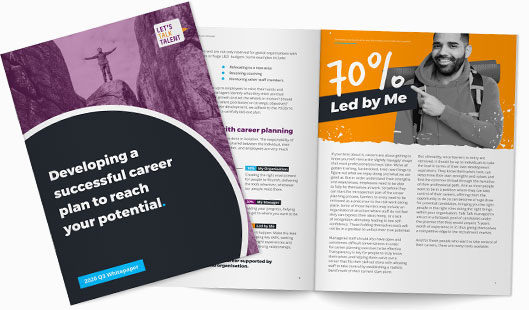Post COVD19: Themes in Careers & Trends
Let’s Talk Talent considers some of the likeliest career trends that we see unfolding, in this series of blogs over the next month. We kick off here with hired immunity. Read the others in our trends:
With many of us working from home in lockdown, the current pandemic has left many wondering what the future holds. According to data compiled from Oxford University’s Blavatsky School of Government, around 3.9 billion people in over 90 countries have been impacted by mandatory lockdowns.
Whether or not you’re used to virtual working, teleconferencing, homeschooling or living with uncertainty about, careers have already started to reset.
While economists, politicians and social scientists debate what the world will look like after the pandemic, everyone agrees that things will never return to how they were. Society’s long-held belief system about work has been demolished and quickly re-assembled.
Legal demands mean non-essential workers stay home, social distance and save lives. Saving livelihoods has forced organisations to adopt new working practices and business models in a matter of days as opposed to years.
Hired immunity
Government intervention in the economy is now at its highest level since war time. Despite the UK government’s unprecedented job retention scheme, which has been applied for by over 140,000 organisations as of 20th April, many employees have found themselves without a job.
Of the six million or so self-employed around 3.8 million can rely on government aid. This figure will leave a large chunk of the workforce facing financial difficulty. In fact, the Office for National Statistics has already seen more people in the UK apply for Universal Credit than during the financial crisis.
However, the current British government has already indicated that this bail out for those who work for themselves will raise serious questions about whether the current tax advantages enjoyed by many self-employed workers can continue in the future.
The figures above don’t take into account many more thousands of who operate under a limited company and pay themselves a salary. This segment is also largely ineligible.
We predict that the predicament many self-employed people find themselves in now alongside albeit delayed IR35 regulations and bleak future tax advantages will impact the number of people who seek to move into the gig economy.
It’s not all bad news, many self-employed workers who have been able to digitalise their products and services and quickly pivot to an online offering have fared better. For example, personal trainers who have charged for online training sessions or independent grocery stores who have built a website or now offer local home deliveries.
We feel this digital component will be the cornerstone of many offerings in the future.
In the next blog in our series, we consider how vlexible (flexible and virtual) working have been thrust upon millions overnight and the legacy this will leave behind.
If you need further help with your career planning during this post-pandemic phase.
We have a bunch of HR resources that might interest you:
If you are worried about bringing your people back into your business post-pandemic, we’ve created a post-pandemic re-onboarding checklist to inspire and give you confidence you are providing the best possible experience for your staff.
Our range of upcoming free HR webinars.

